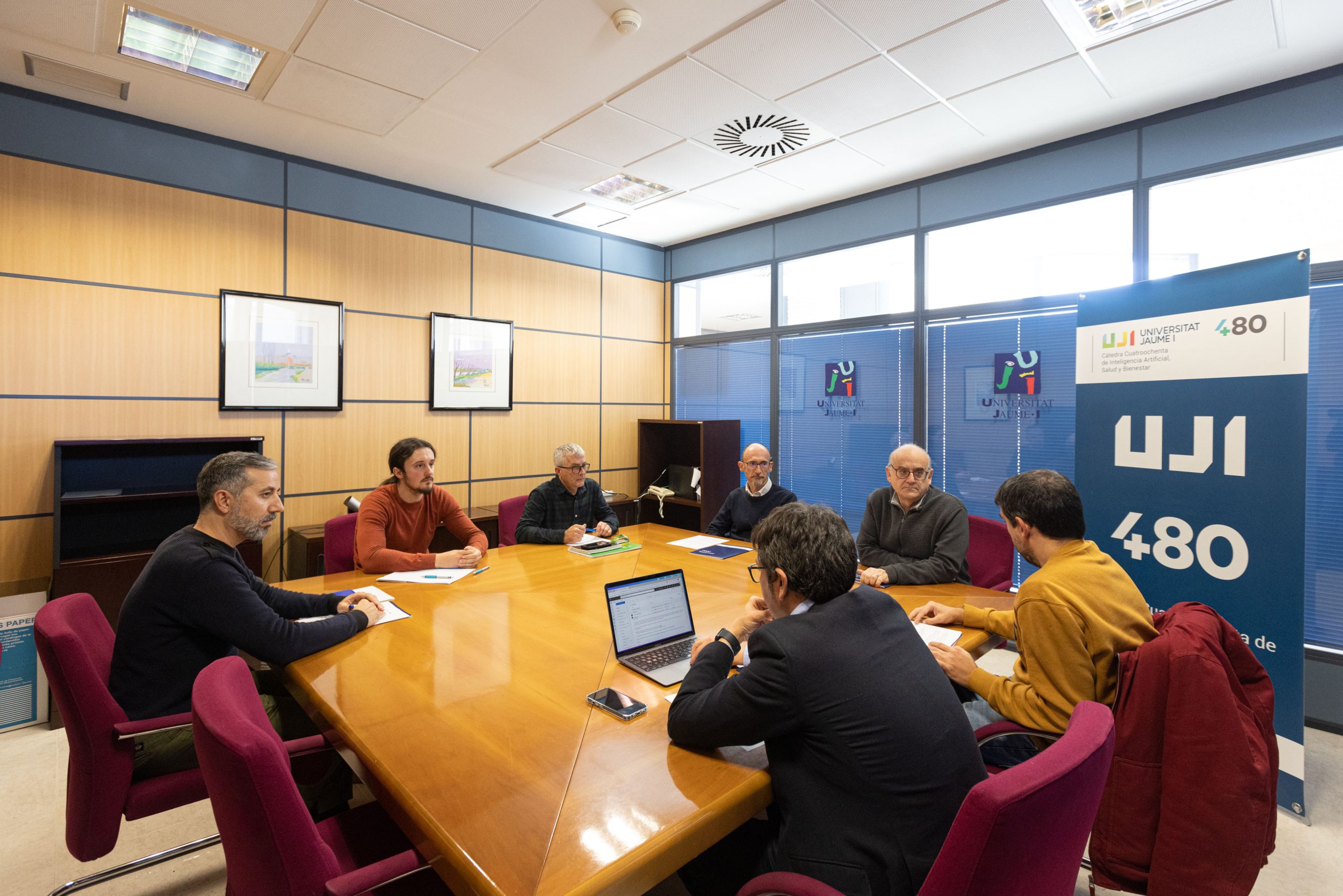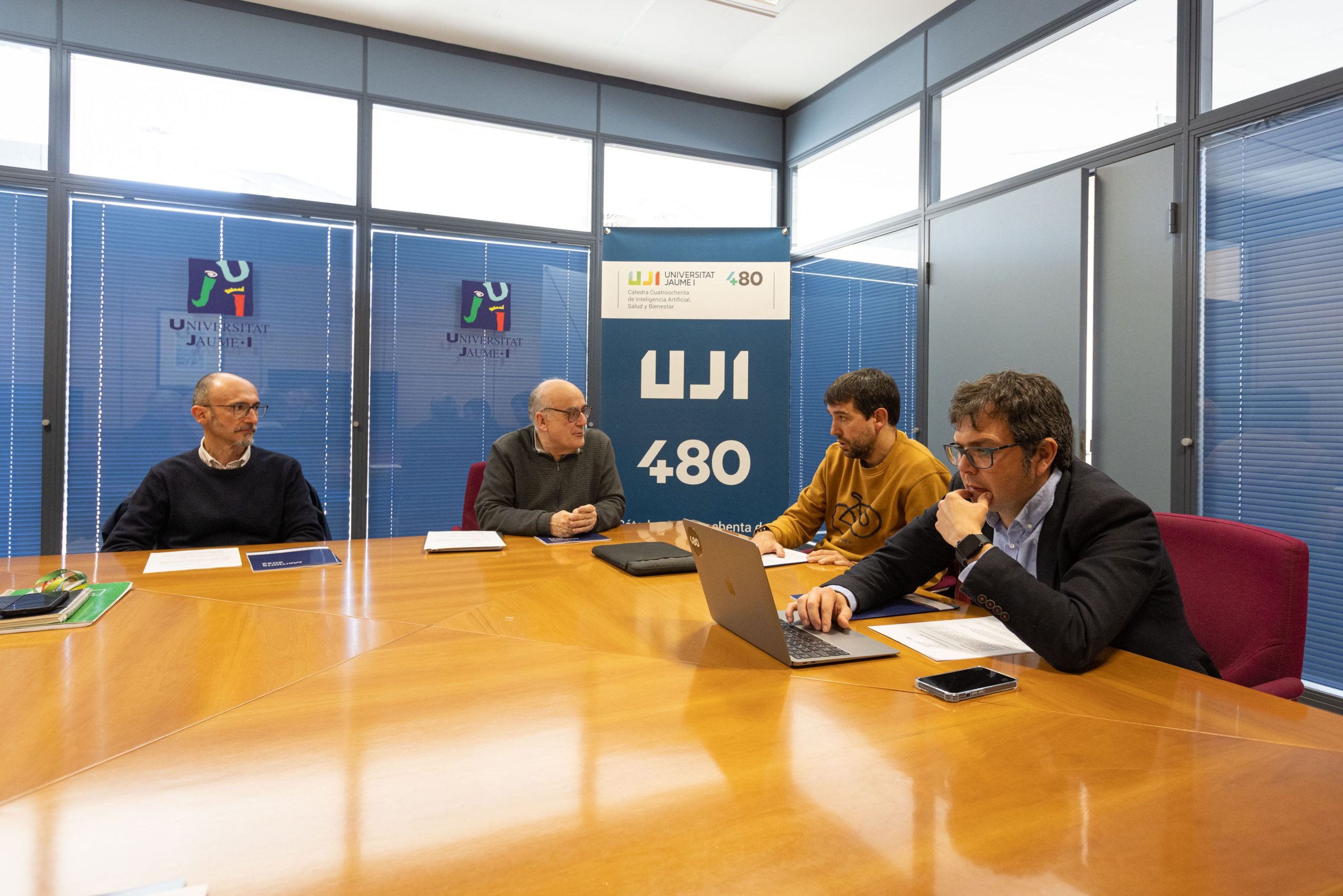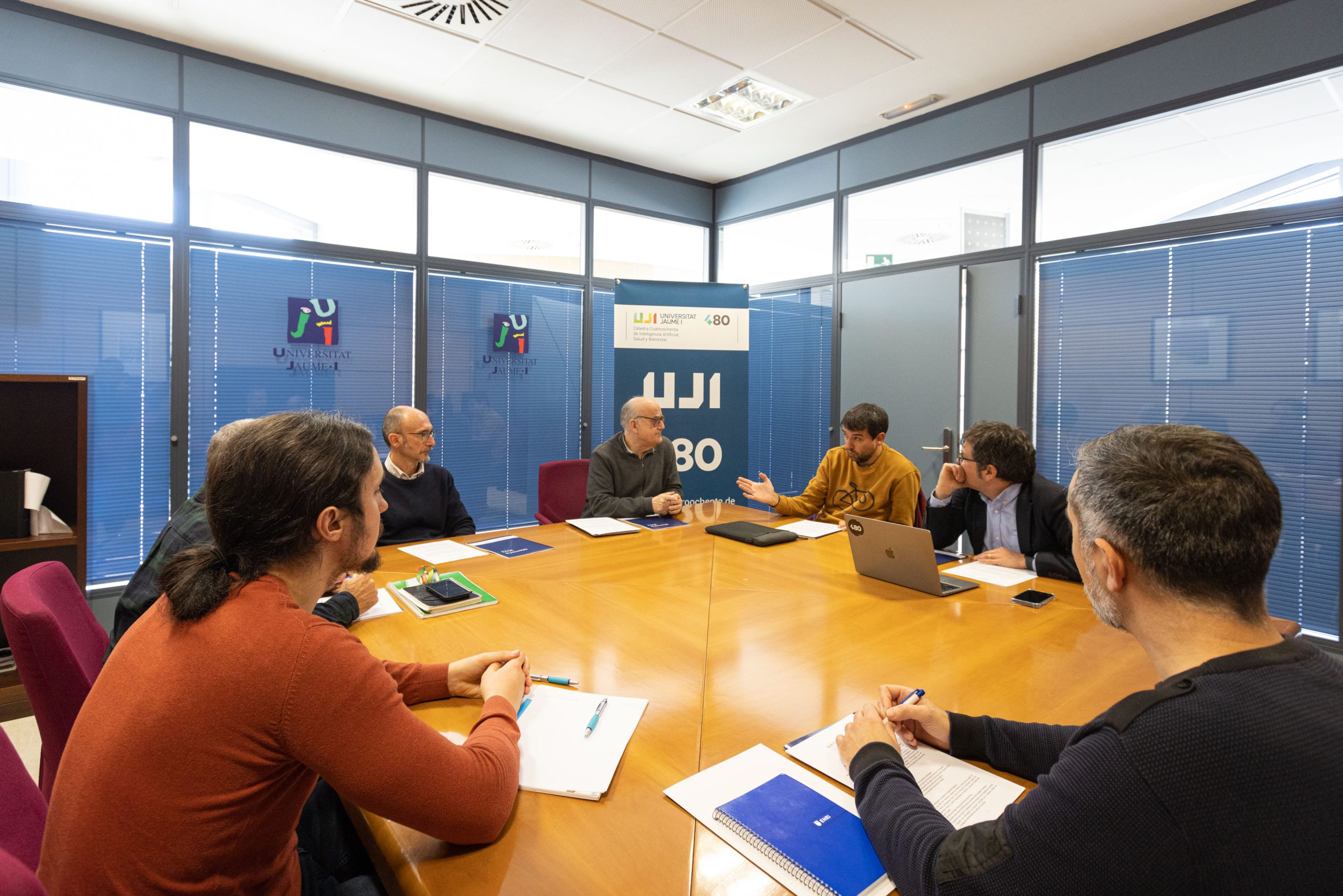Changes in daily habits such as getting up, turning on the TV or going to the toilet may be an early sign of frailty or cognitive decline in older people. A reduction in the number of times a person goes out of the house or less frequent visits to different areas of the home such as the kitchen or bathroom can be a very useful indicator for early detection of cognitive decline in older people. This is precisely the objective of Senior Monitoring, one of the central projects of the Chair in Artificial Intelligence, Health and Wellbeing, on which the team will be working during 2023.
Senior Monitoring allows the person to be located in their own home using Bluetooth technology. It is a very easy to use and non-intrusive system for the elderly. Basically, bluetooth beacons have to be installed in different rooms. These are small devices that can detect the presence of other bluetooth devices, such as smart watches or activity bracelets. In this way, the system allows to know where the person is in the home at any given moment. The design and the technology used guarantee long-lasting autonomous use, avoiding the need for the person to frequently charge the watch or bracelet's battery. Initially the project had been developed with wifi technology but finally it was decided to introduce Bluetooth to avoid coverage problems.
On the occasion of the meeting of the Joint Monitoring Committee of the Chair, the directors Óscar Belmonte and Antonio Caballer presented on Thursday 2 February the activity report for the 2022 financial year and the lines of work for 2023. The meeting was attended by the Vice-Rector for Research, Jesús Lancis, the CIO of Cuatroochenta, Sergio Aguado and the managing partner of Cuatroochenta, Santiago Gimeno.
Other lines of research
One of the Chair's main projects is Sally, on which significant progress has been made in the last year. It is a system for the assessment of frailty that uses 3D cameras to track a person's body and movement. Through Sally, the Chair aims to assess physical frailty. The availability of this tool in different social and healthcare centres would allow professionals to monitor the health of the elderly and detect early any signs of frailty, allowing early intervention to reduce the risk of dependence. During this year, the Chair plans to improve the accessibility and usability of the system and to include in Sally the assessment of the other two dimensions of frailty, cognitive and social.
Another of the Chair's milestones has been the development of a diagnostic report for the Castelló City Council on whether the city meets the needs of older people. This task is part of the project "Age-Friendly Cities and Communities" promoted by the World Health Organization (WHO) and aims to establish a network of cities that promote active and healthy ageing, given the current rapid population ageing. The objective of this diagnosis is the implementation of an action plan to solve the problems detected by the elderly themselves.
The Chair also has projection at European and international level through its participation in various projects such as ARGENTUM, which aims to promote and boost the silver economy or silver economy through the creation of a cluster of organisations from different countries in order to provide customised training courses, improve collaboration and give visibility to all relevant actors in the sector.
In addition to projects and research, the Chair also carries out an important task of dissemination through its website, which has just launched a new version, also translated into English.


